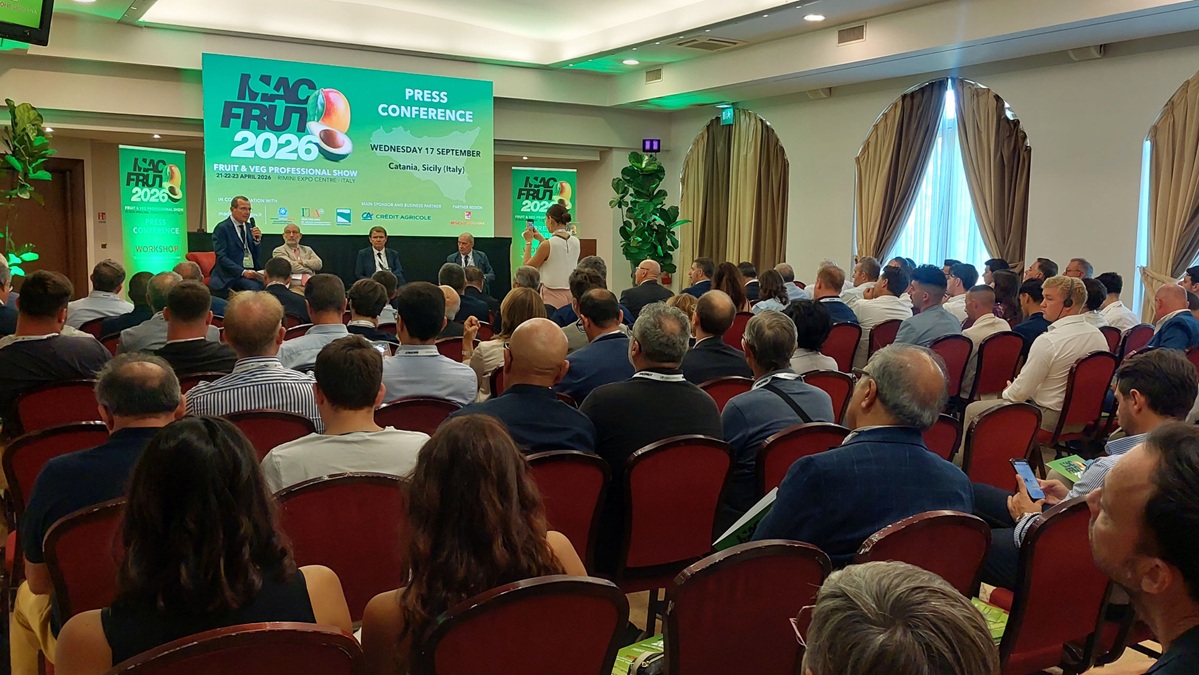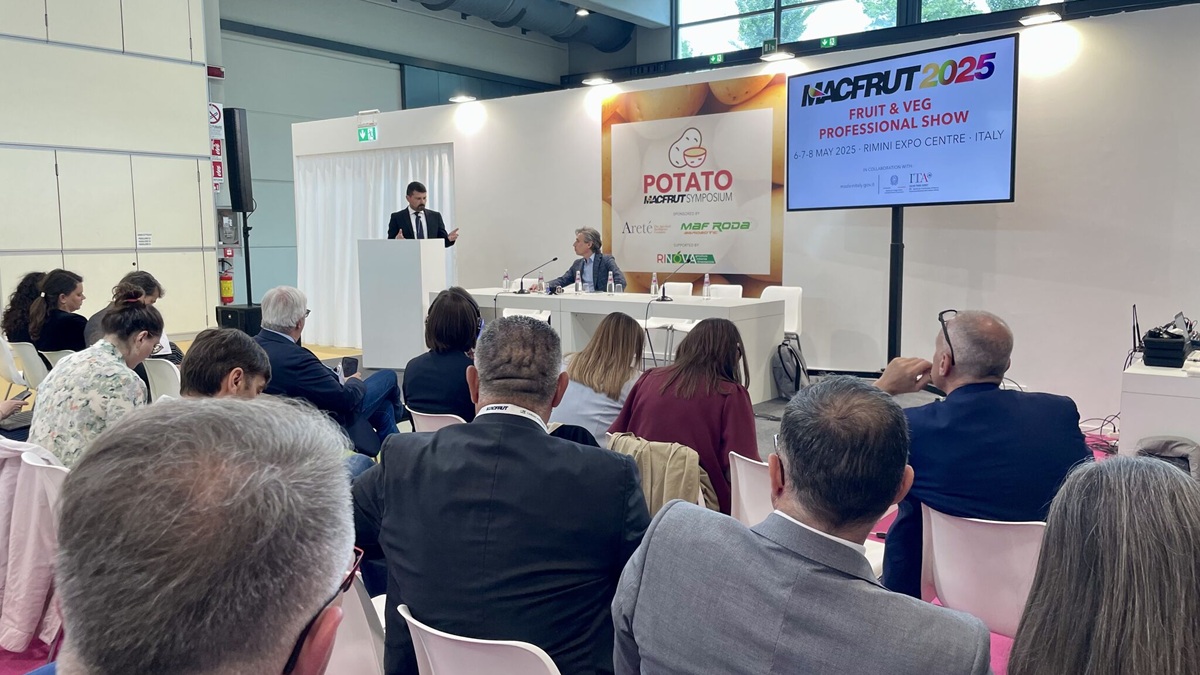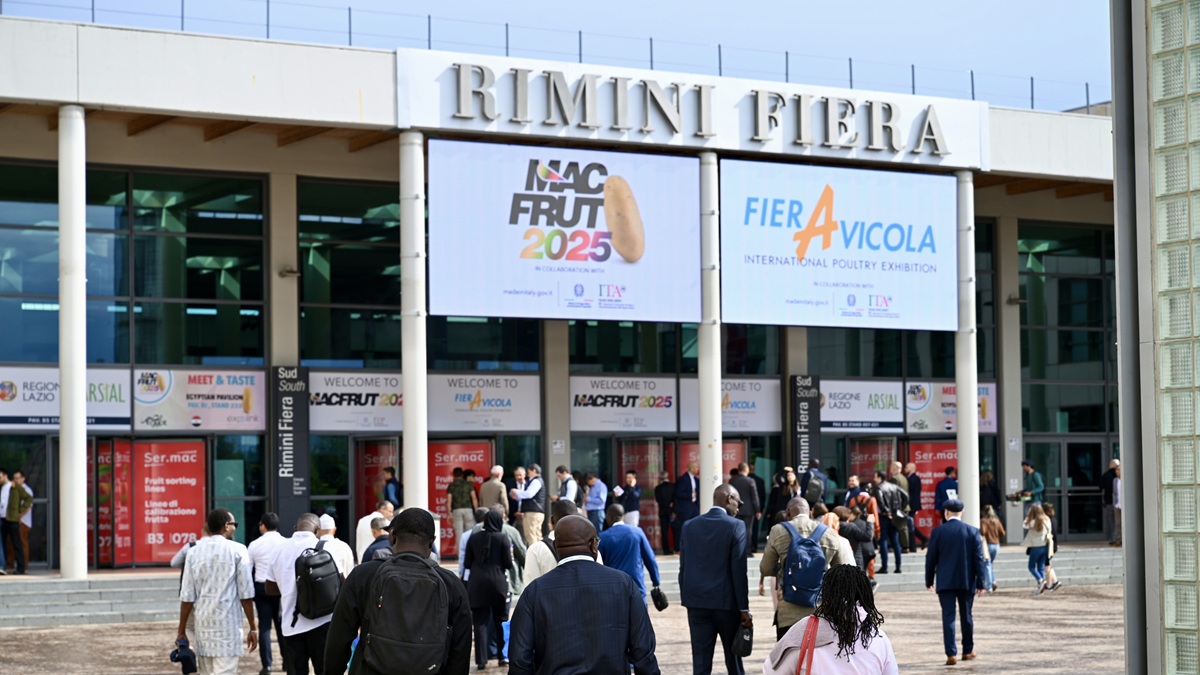Services
Seedless, sweet and productive: spotlight on table grape trends at the Table Grape Meeting
Varietal innovation, but also quality, production techniques and aggregation needs: these are some of the themes addressed at the Table Grape Meeting dedicated to table grapes, hosted by Macfrut on Friday, 10 May. Giacomo Suglia, President of APEO ? the association of producers and exporters of table grapes from the Apulia region, which accounts for 75% of the area cultivated in Italy ? introduced the opening session. As Suglia stated, ?In order to remain competitive in an increasingly global market, we need competitive products, excellent quality and high yields. Not only new varieties but also production techniques that allow us to achieve quality at low cost.?
17 May, 2019
Varietal innovation, but also quality, production techniques and aggregation needs: these are some of the themes addressed at the Table Grape Meeting dedicated to table grapes, hosted by MACFRUT on Friday, 10 May. Giacomo Suglia, President of APEO the association of producers and exporters of table grapes from the Apulia region, which accounts for 75% of the area cultivated in Italy introduced the opening session. As Suglia stated, In order to remain competitive in an increasingly global market, we need competitive products, excellent quality and high yields. Not only new varieties but also production techniques that allow us to achieve quality at low cost. Carlo Fideghelli shared the experience of Rete IVC (Italian Variety Club network), which groups together public and private bodies in Southern Italy. He illustrated the main approaches to varietal innovation: We are seeking completely seedless grapes. In addition, a genetic improvement programme has been launched to make these grapes resistant to cryptogams. In terms of taste, the Muscat family of grapes is increasingly appreciated by consumers. Maurizio Ventura, Licensing Manager Europe for SunWorld International, has identified major varietal trends for Italy and Mediterranean countries: High productivity, low production costs and a pleasant taste are the characteristics we are seeking. Carlo Lingua, Managing Director of Rk Growers and Avi, the sole European agent for ARRA grapes, also addressed the subject. I believe that the future holds great opportunities for Italian agriculture as a whole, but it will not be an easy challenge, since countries that until recently were not planning to produce, such as Morocco, Albania, Serbia, Bulgaria and Turkey, are now entering the market, Carlo Lingua said. In order to offer high-quality products, producers must follow the production protocols set out by breeders. The Grape & Grape group is an all-Italian varietal innovation project. There is an extensive offer of seedless grapes, but these account for only 30% of the grapes grown in Italy, said Alberto Mastrangelo, the groups Sales Manager. Small producers dominate the Italian market, resulting in supply fragmentation. Distinctiveness can be one of the elements that will allow us to deal with this scenario, by developing a range of varieties that enhances the specific characteristics of the cultivation area and creates a link between a variety and its area of origin, Mastrangelo concluded. Gianni Raniolo, President of the Consorzio Uva da Tavola Mazzarone IGP of Sicily, presented an example of local production. Our project was born out of the need for producers to work together, since competition takes place on a global scale, Raniolo explained. In 2018, we produced more than 3 million kilos of these table grapes, which are distributed to Italys leading retail chains. The first session was followed by a Round Table, during which international speakers discussed three themes: varietal innovation, seedless grapes and exports, presented to the audience through video statements made by key players in the sector. Debbie Lombaard, from the sales team of Richard Hochfeld LTD, provided an insight into the UK market. Seedless grapes dominate the British market almost completely, with consumers preferring sweet and crisp fruits. We cannot sell yellow grapes because consumers are accustomed to green ones, she explained. The main problem is keeping quality constant, as there are still many differences between producers, so growers need to know how to handle these new varieties. But Italy has a competitive advantage as well. Italian products are the result of extensive experience and are well-known for their quality, and Italy must therefore rely on these strengths, she added. In terms of exports, Italy could benefit from expanding its market even outside of Europe. Germany also values Italian grapes highly and is their number one importer. Annabella Donnarumma, Managing Director of Eurogroup Italia/Rewe, explained how consumption has evolved in Germany: Today, 70-75% of grapes are seedless, whereas seeded grapes will increasingly become a niche product, but it must be a premium quality one. In Germany, consumer preferences are changing: yellow grapes are still sold in the south, but the further north you go, the more green grapes are appreciated. Varietal innovation should focus on grapes with a sweet taste, even if they are not very colourful. Annabella Donnarumma then spoke about exports: Over the years, Italian producers have made huge sacrifices to meet our demands and have grown by taking market requirements into account. What is missing is aggregation, a spirit of true cooperation, so we can keep up with emerging countries in the global market while maintaining our current competitive advantage. Joaquin Gomez Carrasco, President of the Spanish producer association Apoexpa, also took to the floor. Over the last 20 years, Spain has been researching new seedless varieties, since the seeded variety is disappearing, commented Carrasco, who defined seedless grapes as a natural fresh-cut product. With regard to international markets, he added: A major concern is that an increase in production may lead to price fluctuations, which is why we need to find new target markets, but growth is often a slow process. Therefore, it is not a question of producing more, but of improving quality, which is a challenge that all producers in the Mediterranean region are faced with. Stefano Borracci, Sales Manager at Serroplast, shared his experience of working with Chilean table grape producers. In order to remain competitive in key markets such as North America, farmers felt the need to improve quality through innovative technology. This choice was mostly driven by climate change, which, in the last few years, has caused extreme weather events.












